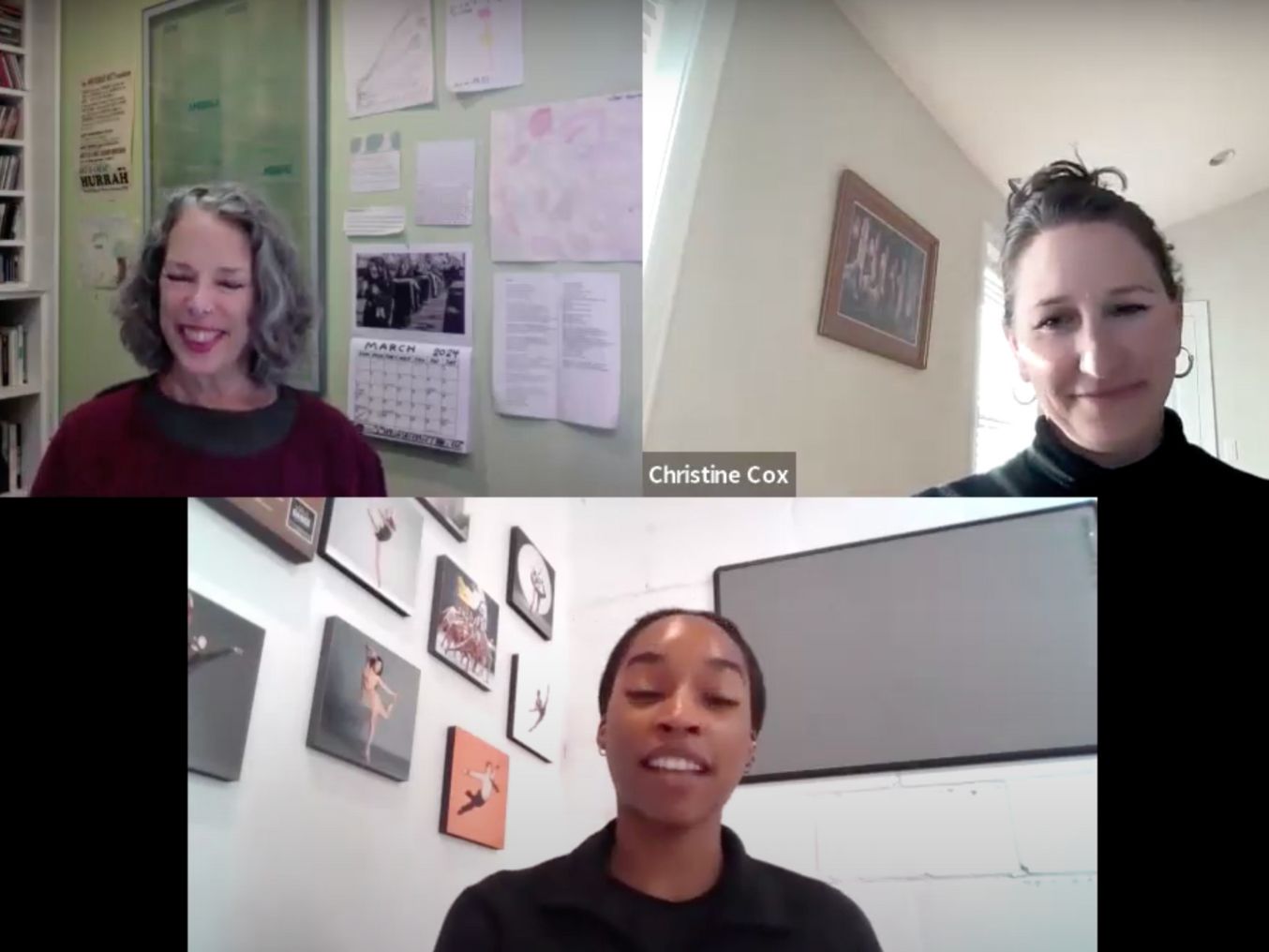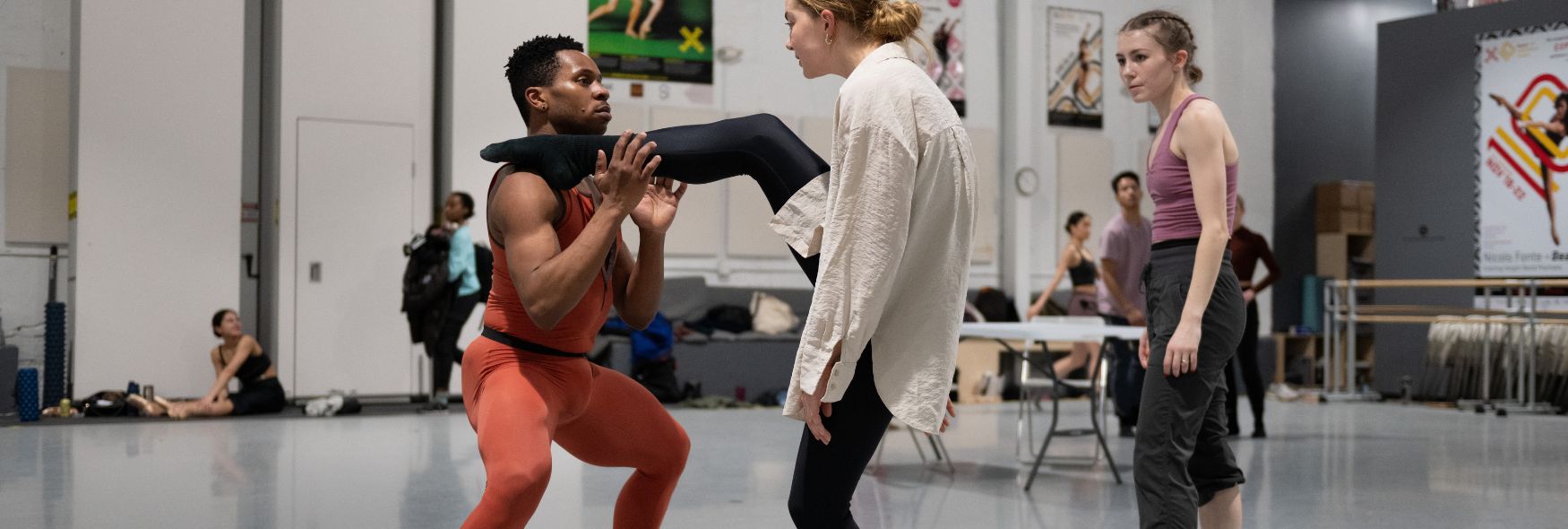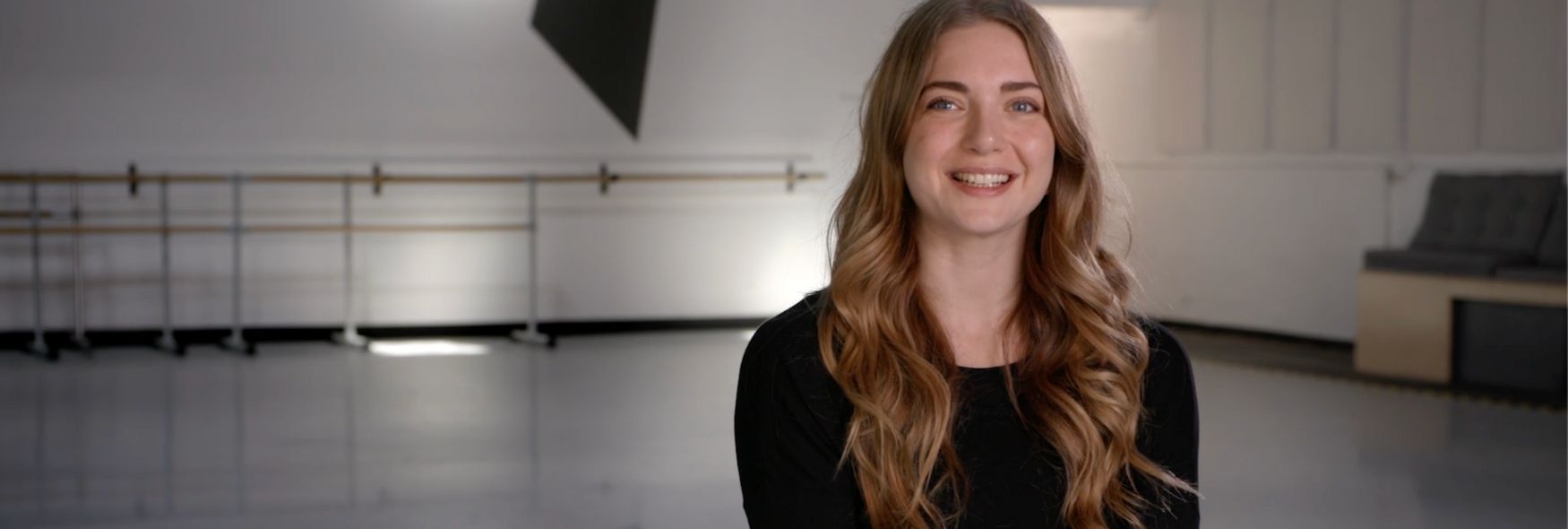BalletX interviews Darrell Grand Moultrie for his third world premiere with the company in Fall 2022. Darrell has established himself as one of the most diverse and sought-after choreographers and master teachers. He shares what it’s like to work with the company again, the heart of inspiration for his choreography, his creative influences, and living the dream in the studio.
What’s it like to be back at BalletX for your third work?
It’s exciting. I feel so much more at ease. The word I find is contentment. I’m home. It’s like a family. It’s like a root that’s been growing and now it’s there. To watch the company grow and to be back here, it’s just kind of beautiful. I feel like I know who I am more now, so it’s easier to create. The relationship grows and grows and it deepens and the root is there now, so I’m settled.
When you’re going to a company for the first time, there’s always a nervousness because you don’t know them, they don’t know you. You’re trying to build a relationship. By the third time, you feel so set and comfortable with the artistic leadership that you’re not even thinking of them while you create. You’re not thinking of pressures or time constraints. You’re thinking of coming in and having a richer process.
What’s at the heart of the inspiration you’re bringing to the choreography?
I think the heart of the inspiration is impermanence and living for Now. Each section of the ballet I want to live as an island that can be pulled out and done separately. But, collectively it’s a woven thread of inspiration for Now. To survive Now. To live Now.
I’ve been doing more musicals lately, but a lot of my concert work is rooted in gratitude, love, living in the present. I lost my mother during covid. There’s something about that that makes you want to leave people with pieces of beauty, and these are things we have to find and break into. If you come to see a show, it’s our duty to inspire you, to lift you.
It’s nice, too, this time around. I get to use more adagio. I’m used to doing the closer, which is a very specific and difficult crafting of movement and energy. I love that. It’s fun and it’s exciting and you get to push the dancers’ athleticism. But, I live for the pieces where you can sink your teeth in and help the dancers focus on their quality, the execution of their technique, the texture of how they move, and their musicality.
It’s very hard and that’s what I love. It’s very hard to get a dancer to tap back into their purity and their control, leaving us with a strong base to throw it away and make it contemporary.
What are the highlight moments of your career?
I think being an African-American choreographer and moving through these spaces, that’s the highlight. The highlight is being able to move through all of these spaces and be an ambassador and a representation of where I am from, the projects of Harlem in New York City.
I want to make sure that young people who look like me and around the world know that you can move through the world without people pigeonholing you and telling you exactly what label they’re going to put on your head about what kind of style you’re going to do. So I feel like the highlight of my career IS my career. The diversity of it and what it represents.
What important memories and life experiences continue to influence you?
The important thing about my past, which is a clear residue of what I try to bring to the room, is passionate teachers. I had very passionate teachers that made me fall in love with art, all types of art. They were so passionate to the point that they were mesmerized by art…and they made me mesmerized by art. I always bring my teachers in the studio with me. There’s a lot of choreography, but there’s tons of coaching and talking.
At this point now, it’s larger than the final creation. It’s about the seeds you leave behind, like a legacy. It may drive the dancers crazy or it may not, but something will stick. It’s important to talk and coach and give them opportunities to discover their musicality, their texture. I think that’s something that I stick to.
Is there a dream project you’ve always wanted to create or is there a dream company you’ve always wanted to choreograph on?
I feel like in the beginning there were because I had these expectations of what I should be doing. But, if I can be very honest, I look at my career and I’m like, “I’ve done every dream job I’ve wanted to do.” For me, it’s contentment now. You realize you start out with these lanes and you have it all strategic like, “I’m going to do that and I’m going to do this,” and then there’s life. It starts changing on you.
I’ve been very blessed. I think the dream is to become even more content with where I am in my life. If I can keep doing that, it solidifies everything. It’s weird to be somewhere at a company and say my dream job is this. When I’m in that studio, I’m living the dream.
What do you want to communicate to the next generation?
To be obsessive about being great and discovering new things. To be original. Fight to be original, to keep your voice. Don’t let people silence your voice.
Be careful with who the world pegs as amazing and, if you don’t make that list, make sure you keep your validity. Fight to keep yourself encouraged when the light is on you and when the light is off of you. So, staying true to your voice and making sure you push yourself to do high quality, too. To work in a space of high quality.
And if there was a last line…my god, please stay musical. We need music. Music is important. Syncopation. Rhythm. Beauty. Lushness. You know, we need music. We want to keep music alive that’s rhythmical and beautiful and lush…or percussive or fast or slow. Don’t let music die.
See BalletX perform Darrell Grand Moultrie’s third world premiere at Fall Series 2022, Nov 30 – Dec 4 at The Wilma Theater.


